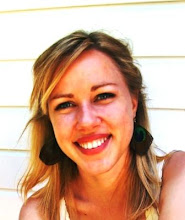How to Make God Visible: An Interview with Philip Yancey (Part 1 of 2)
Best-selling Christian author Philip Yancey has followed Prison Fellowship since its early days, and recently he was a keynote speaker at a worldwide Prison Fellowship convocation in Toronto, Canada. While he was there, he sat down with Prison Fellowship to talk about prison, grace and making God visible.
Prison Fellowship: When did you first learn about Prison Fellowship?
 Yancey: I’ve known Ron [Nikkel, president of Prison Fellowship International] since before he was the director. We lived about a block away from each other in Wheaton, Illinois. I was the editor of a magazine and he headed up an organization called Youth Guidance, which dealt with…the euphemism they used was non-school-oriented teenagers, which is a polite way of saying juvenile delinquents. We became friends. I also knew Chuck Colson. I had a lot of friends who worked at Prison Fellowship, and then Ron was appointed director—I think Chuck actually made that choice right when they were first expanding into other countries. So I’ve known the organization right from the beginning of its international outreach.
Yancey: I’ve known Ron [Nikkel, president of Prison Fellowship International] since before he was the director. We lived about a block away from each other in Wheaton, Illinois. I was the editor of a magazine and he headed up an organization called Youth Guidance, which dealt with…the euphemism they used was non-school-oriented teenagers, which is a polite way of saying juvenile delinquents. We became friends. I also knew Chuck Colson. I had a lot of friends who worked at Prison Fellowship, and then Ron was appointed director—I think Chuck actually made that choice right when they were first expanding into other countries. So I’ve known the organization right from the beginning of its international outreach.PF: And what drew you in?
Yancey: Like a lot of Americans I was very unaware of the conditions in other countries. In many countries, of course, the prison doesn’t provide food. So the families are responsible for feeding the prisoners. Well, if the prisoner has shamed the family, the family isn’t motivated to provide food, so prisoners will literally starve to death unless someone steps up and provides. I got to know the appalling conditions, and the desperate need that Prison Fellowship International was addressing.
More positively, as I visited some of these prisons with Ron I found a devoutness, a vibrancy that you just don’t find in your normal, suburban Sunday church. I thought, Wow, this is really the Church here, because these guys had little but their faith in God to keep them going. They were in hopeless surroundings, and they needed hope just to survive. We visitors went away with more encouragement and inspiration than we brought in, by far. We learned from them.
PF: You’re a popular author and speaker with a busy schedule. Why did you accept an invitation to address an international convocation of prison ministers?
Yancey: Most of what I do is vicarious. I am not on the front lines of ministry. What I can do, however, is shine a little light on works that I believe in.
I sit in my basement office. I’m just writing words in hope that one day those words will jump out and help somebody, and I hear that they do. So, I’ve learned that’s what I can do. I can help motivate and bring encouragement to people who are doing the real work.
PF: You wrote a book called What’s So Amazing About Grace?, and recently you visited Old Folsom State Prison in California. While there you asked inmates who had been reading your book what they thought was so amazing about grace. What did you learn from them?
Yancey: One of the most articulate guys said that grace sets you free. If you don’t have grace, you’re bound to respond. If somebody hurts you, you’ve got to hurt them back. In a prison, if somebody hits you, you’ve got to hit them back. Prison is a very non-grace environment, often ruled by gangs who are quick to take advantage of any weakness. And so you get people who will cover your back, who will stick up for you. And if you’re insulted, you’ve got to respond in kind. That becomes a kind of slavery, said this prisoner. You are bound with the law of the jungle, as it were, and grace breaks that law. He went on to say, “Grace is the house in which I live. What I need to do is learn to invite other people into that same house.”
I thought, That’s a beautiful way of expressing it. He’s discovered the freedom of grace. Yet it’s hard to put into practice, isn’t it? Our instincts kick in, especially in a prison environment, and if you show any kind of weakness, others will exploit it. But no, there’s a better house. I’ve got to occupy that house, and gradually invite other people inside it. And that may be a metaphor for what Prison Fellowship does. We’re showing another way. We’re building a new house, and we need to invite other people in and say, “It’s a better house.”
PF: What else have prisoners taught you?
Yancey: A different prisoner said, “How would you like to be remembered for the worst thing you ever did in life?”
That’s the shame a prisoner wears. It reminds me of the old scarlet letter story by Nathaniel Hawthorne: you take the one thing a person did wrong—adultery, in this woman’s case—and make them actually wear it, literally, as the letter A, so that everyone knows, “Oh, that’s the woman who….” Essentially, we do that when we convict prisoners: for the rest of their lives, every time they apply for a job, every time they try to vote, they are known for their mistake.
We all do shameful things and wrong things, and the Bible is very clear that our artificial distinctions between the really bad things and other bad things are just that--artificial! If you go back to Romans 1 through 3, for example, Paul starts with the really bad things, like perversion and murder, and then he proceeds to say, “You who judge are guilty of the very same things.” Much like Jesus in the Sermon on the Mount: “If you’ve been angry, it’s no different than murder. If you’ve lusted, it’s no different than adultery.” More, Paul goes on to say, “Actually, it’s people like me who are the worst of all: self-righteous people.” Paul knew that syndrome well. Most people would see Paul as a righteous person, but he knew, “No, I was, a self-righteous person, and it was my self-righteousness that caused me to do things like participate in the stoning of Stephen. I became a murderer because of my feeling of superiority. I thought I was better than those guys.” And that’s the danger.
What I’ve learned from prisoners is that they are just like us. For whatever reason, we have put a label on them that puts them in a different class from us. That’s a danger for the rest of us because, as Paul said, it’s easy to slap a label on someone and say, “I’m certainly not as bad as that!” But Paul insists, “No, you’re not better. You may in fact be worse.”






No comments:
Post a Comment